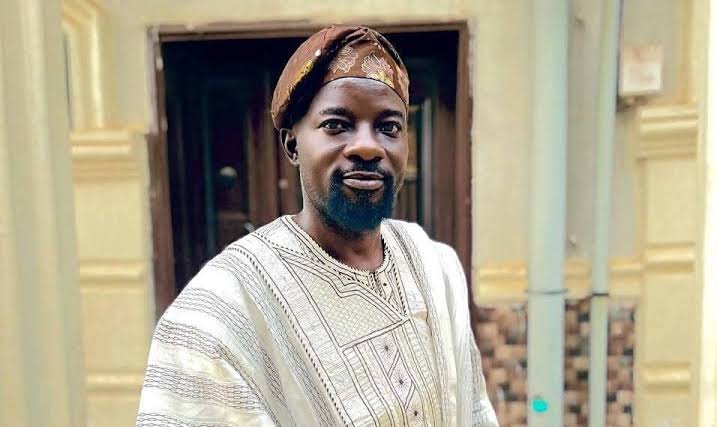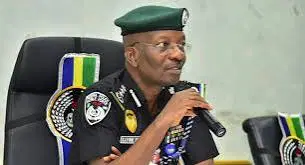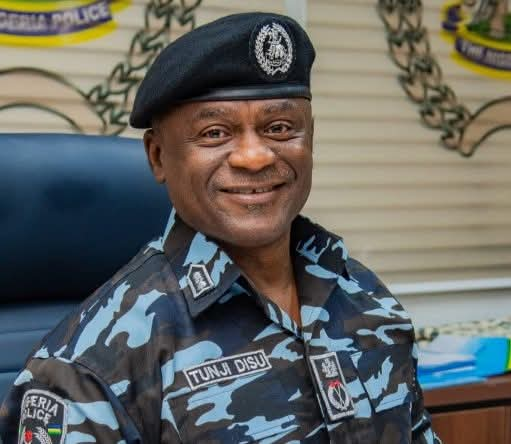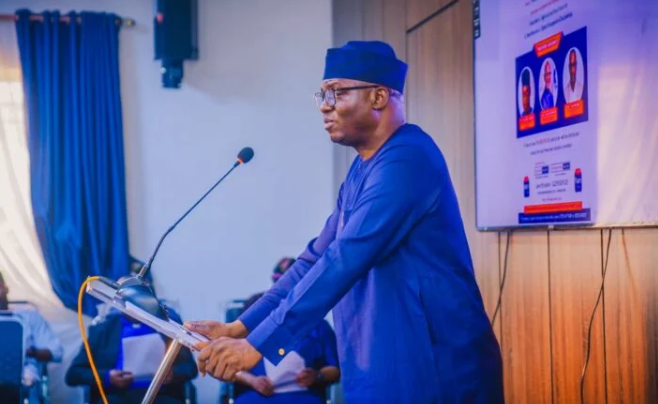‘The Presidency’, which can be any of Garba Shehu, Femi Adesina or Abubakar Malami, depending on which of them cares to speak at any point in time, is never short of an answer to any question raised by Nigerians.
The Presidency is in a sense the defacto president of Nigeria, another word for and the alter-ego of President Muhammadu Buhari, who has apparently entrusted the fate of Nigeria to it. The disappointing thing about this all-purpose, shadowy body (if anyone is still capable of such emotion as far as Abuja is concerned in this present time) is not so much that ‘the presidency’ has ready-made answers to everything, but rather that the quality of the responses tends to reduce every issue to the realm of partisanship. For the presidency, every criticism is an attempt by implacable opponents of the President to attack him or his government for no good reason.
The presidency is an echo chamber that is cocooned in a bubble. There is hardly any attempt at or pretence to consider issues on their own merit. Flippant dismissal is the order of the day. This is, perhaps, why the government it serves does not appear to be learning from the mistakes it prefers to double down on. Talk about the fact that Nigeria appears to be sinking under the weight of foreign debts and you are told Nigeria’s debt is within sustainable limits and, in any case, debt is a good thing for as long as it is incurred to build infrastructure that would help stimulate the economy. As if previous administrations made no investment in infrastructure when they tried to cut down on debt.
Quite a number of the infrastructural projects the present government makes so much song and dance of were initiated by its predecessors. While the choice to finish those projects makes much sense in light of the criminal preference for new projects by some politicians, it ought to moderate the manner officials of the All Progressives Congress-led government tend to assume a superior position on the issue of investing in infrastructure. Demand explanation for why a railway line is being constructed to Niger Republic and you hear talks of economic diplomacy even when nobody cares to explain why such diplomacy is only important when it concerns Niger and not, say, Benin or Togo, with far higher trade volume with Nigeria but whose borders with Nigeria were put under lock and key for at least a year.
We are told by the Transport Minister, Rotimi Amaechi, that we should be begging Niger should they reject our overtures to construct the rail line we are eager to build. The presidency also dabbles in the politics of appointment – who is fit or not to be a minister as with the Ali Isa Pantami, Minister of Communications and Digital Economy’s controversy.
In one word, the present Nigerian presidency is often defensive, voluble, and never short of answers, offering excuses where what is needed is logical reasoning. In its latest antic, it’s Garba Shehu who is telling Nigerians that the spate of reckless mass killings in Nigeria is nothing new and needs not to be reported as if it’s a new thing. For him, such comments are masked attempts to attack President Buhari. It was not long ago that supporters of this government were cautioned against measuring the government’s performance in securing life and property in terms of the number of Nigerians killed by so-called bandits and insurgents.
The life of Nigerians is worth more than statistics. No figure can assuage the pain of a grieving heart. So, Mr. Shehu, Nigerians are well apprised of the fact that people have been dying ‘forever’ as you want us to understand. But it won’t be stretching facts to say they’ve not been dying at the rate we have witnessed in recent times. However, cliched it may sound, it is no hyperbole to say there have been too many deaths, perhaps more than at any time the country was not at war than now.
Yes, many believe Nigeria is already at war, as Wole Soyinka again restated early this week. But this government holds a different view. This then leaves one to wonder if it’s the mass annihilation of all Nigerians that would convince Garba Shehu, even in the perennial notoriety of the absence of reliable data on such things in Nigeria, that there are more peace-time deaths today than at any other time since the founding of Nigeria as an independent state.
As with the killings, so could it be argued that no previous government has been this blatantly ethnocentric in making appointments to public positions. All of this is so because of the role of ‘the presidency’ in the life of the Buhari administration. And in case the facts as they pertain to increasing but avoidable deaths do not stick for Mr. Shehu to fully comprehend, here is a reminder as provided by Premium Times: More than 239 Nigerians were killed this past week and 44 others were kidnapped. This is without looking at previous records. Yet, by the beginning of this week on Sunday, April 25, the grim statistics were again rising with eight people, including a medical doctor, getting killed in cold blood in a church in Kaduna and many abducted.
Would Garba Shehu dispute the fact that at no other time in Nigeria’s previous post-colonial history has there been such crass disregard of security agents and agencies as the ongoing brutal onslaughts on them, accentuated since the EndSARS protests of October 2020? When was the last time before the last six years with soldiers going AWOL from the frontline and abandoning their weapons? That happened for a short while under the Goodluck Jonathan administration. But not in a sustained manner of the last few years or at this rate.
From the insurgents-ravaged North-east to the bandit-ridden North-west, from Geidam in Yobe State where soldiers and their commanders are high-tailing it to safety and surrendering to the superior firepower of Boko Haram, to many parts of Zamfara, Niger and Kaduna states where bandits have become warlords who demand tributes from citizens-turned subjects and elite patrons, to say nothing of the attacks on security agents, ranging from Customs officers, police personnel and soldiers in Rivers State of the Niger-delta, to Imo State in the South-east where police and other military formations and, in fact, the seat of government have been under repeated attacks after the governor, Hope Uzodinma, was accused of ‘murdering sleep’ by a group of his tormentors.
At what other time were attacks like these so coordinated and sustained at peace time? These are not speculative musing but questions for Garba Shehu to answer. Neither with a dismissive wave of the hand or reductive logic.
Advertisement





